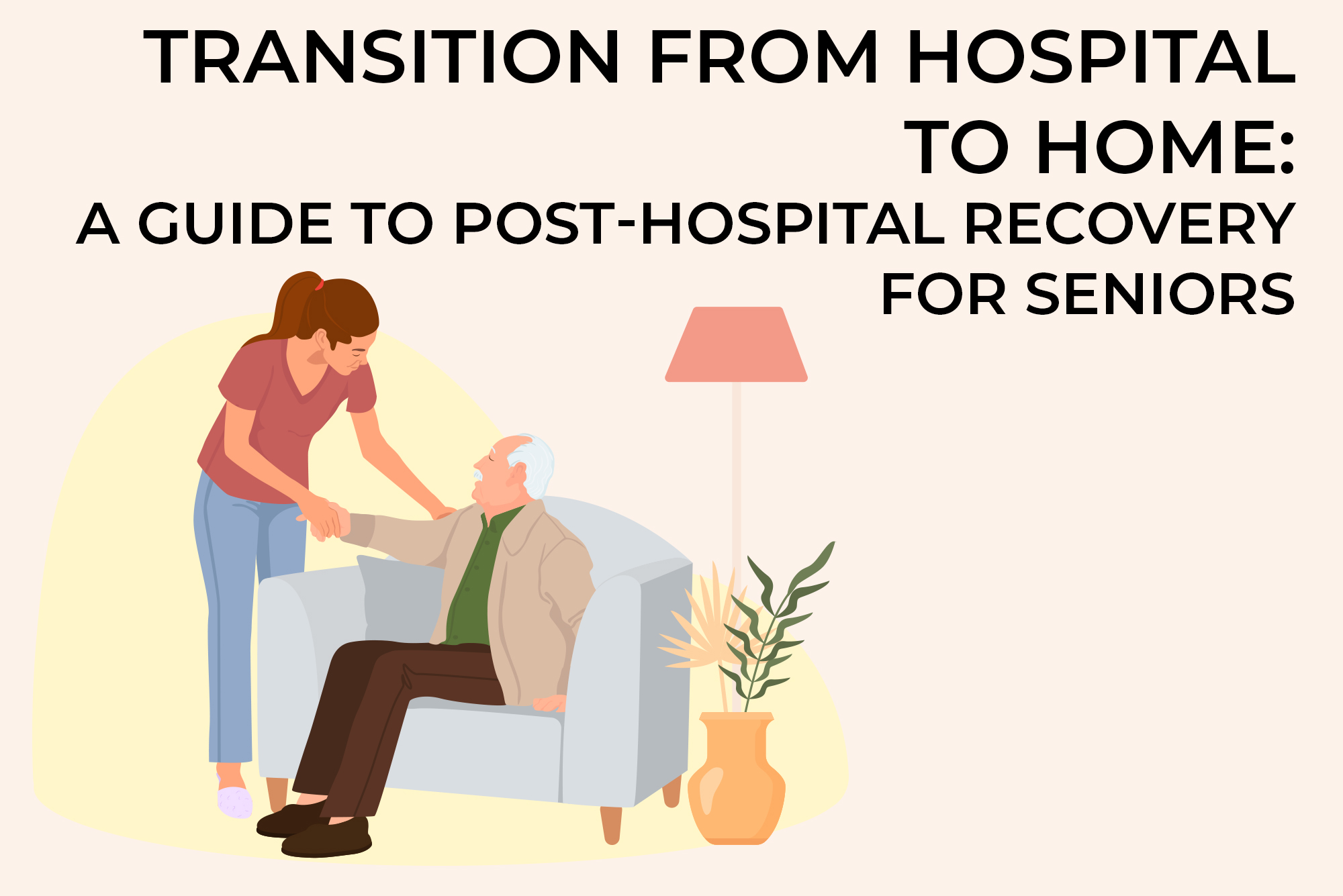Transition from Hospital to Home: A Guide to Post-Hospital Recovery for Seniors
Recovering after a hospital stay can be overwhelming—especially for seniors. The shift from a highly structured medical environment to home often involves complex instructions, medication changes, and emotional stress. A smooth hospital to home care transition is crucial for promoting healing, avoiding complications, and improving quality of life.
This guide will help families understand the key steps in post-hospital recovery and how professional home care services can make the senior home transition easier and safer.
Why the Hospital to Home Transition Is Critical
The period following a hospital discharge is one of the most vulnerable times for seniors. During this phase, patients may face physical limitations, new diagnoses, or changes in medication. Without proper support, the risk of hospital readmission increases significantly.
A well-managed transition helps to:
-
Reduce hospital readmission rates
-
Promote faster recovery
-
Improve emotional well-being
-
Increase independence and confidence
That’s why hospital to home care services have become a vital part of modern healthcare—especially for elderly patients.
Challenges Seniors Face During Post-Hospital Recovery
While every situation is unique, seniors often encounter common obstacles when returning home from the hospital:
1. Physical Limitations
Many seniors are discharged with mobility restrictions, weakness, or surgical wounds. These limitations can make everyday tasks like walking, bathing, or preparing meals difficult without assistance.
2. Medication Confusion
Post-hospital recovery typically involves multiple medications with new dosages and schedules. Mistakes in managing medication can lead to complications or re-hospitalization.
3. Lack of Support
Family members may not be able to provide around-the-clock help. Without professional assistance, seniors may struggle with personal care, household chores, or getting to follow-up appointments.
4. Emotional Stress
Leaving the hospital can trigger anxiety or depression—especially if the senior is still in pain or fears falling ill again. A compassionate senior home transition plan can offer peace of mind.
How Hospital to Home Care Services Help
Hiring a qualified home care provider can greatly improve the post-hospital recovery experience. These services offer customized support based on the individual’s medical needs and daily routine.
Here’s how professional caregivers can make a difference:
Personal Care Assistance
Caregivers can help with bathing, dressing, grooming, and using the restroom. This ensures the senior maintains dignity and hygiene during recovery.
Medication Reminders
A home care aide can keep track of medications and make sure the senior takes them on time and in the right dosage.
Transportation & Appointment Support
Seniors often need to attend follow-up visits or therapy sessions. A home care provider can arrange or accompany them to appointments to ensure continuity of care.
Meal Preparation & Light Housekeeping
Proper nutrition and a clean living environment are essential to healing. Caregivers can cook meals, tidy up, and ensure a safe home setting.
Emotional Support & Companionship
Loneliness can negatively affect recovery. Home care professionals provide companionship and emotional reassurance to reduce feelings of isolation.
Steps to Ensure a Smooth Senior Home Transition
Families and caregivers can take several proactive steps to ease the transition from hospital to home:
1. Plan Ahead Before Discharge
Start planning early. Talk with the hospital discharge team about what the senior will need at home—equipment, follow-up care, or therapy services.
2. Assess the Home Environment
Check the home for hazards. Remove clutter, install grab bars, and arrange furniture to make walking easier. A hospital to home care provider can also offer a home safety evaluation.
3. Communicate with Healthcare Providers
Make sure all instructions from doctors are clearly understood. Keep a list of medications, upcoming appointments, and warning signs to watch for during recovery.
4. Hire Trusted Home Care Services
Choose a reputable agency like Caring Home Care that specializes in post-hospital recovery. Our trained caregivers are experienced in helping seniors navigate the early stages of healing safely and comfortably.
5. Monitor Progress
Stay involved. Check on the senior regularly or speak with their caregiver about their recovery progress. Adjust the care plan if needs change.
Why Families Choose Caring Home Care
At Caring Home Care, we understand the emotional and physical demands of a senior home transition. Our hospital to home care services are designed to support patients and their families every step of the way.
We offer:
-
Personalized care plans tailored to post-hospital needs
-
Trained, compassionate caregivers
-
24/7 availability for peace of mind
-
Clear communication with family and medical providers
Whether your loved one is recovering from surgery, illness, or an accident, our goal is to ensure a safe and smooth return home.
Final Thoughts
The transition from hospital to home is a critical time for seniors. Without proper planning and care, it can lead to setbacks or readmission. By understanding the challenges of post-hospital recovery and choosing the right hospital to home care provider, families can give their loved ones the best chance at a full and safe recovery.
Let Caring Home Care help you or your loved one take the next step with confidence.




Leave A Comment